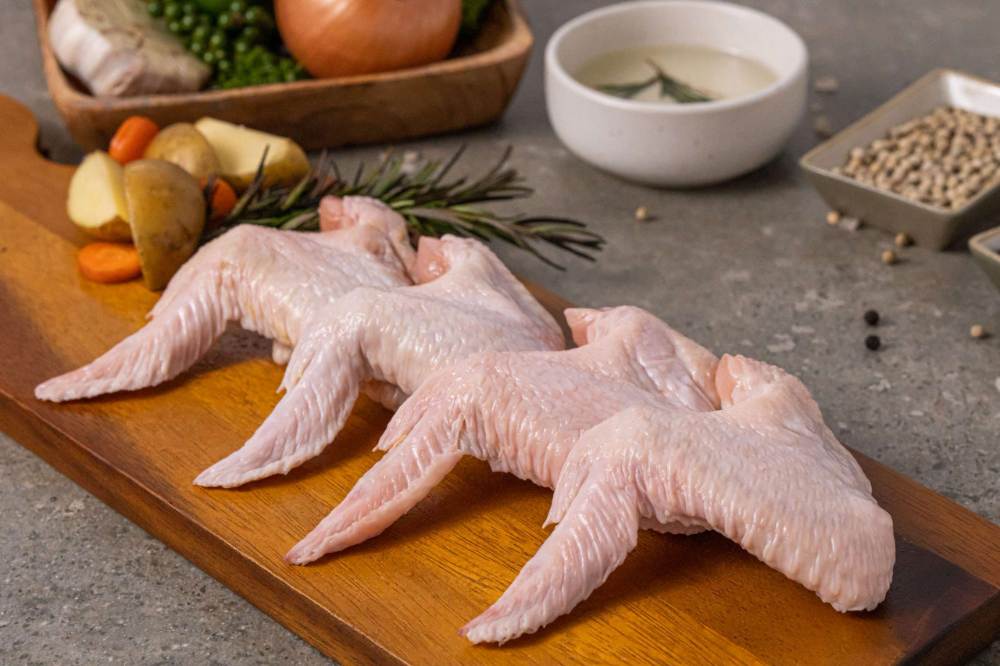The Price of Chicken in Ghana Cold Stores.

Chicken is a popular protein source for many households in Ghana. It is a versatile and important ingredient that can be found in a wide range of dishes. Chicken is so popular in Ghana that, it is often referred to as the “meat of choice” by locals.
In recent times, the cost of chicken has been on the rise, leaving many wondering why this is happening and what impact it has on the countrys economy.
One of the most popular dishes that features chicken in Ghanaian cuisine is called Jollof Rice. Another popular chicken dish in Ghana is called Waakye. Chicken is also a popular ingredient in stews and soups in Ghanaian cuisine.
The poultry industry has been growing steadily over the past few years, with chicken being one of the most consumed meats in the world.
With this growth comes the need to preserve the chicken in a safe and effective manner. That is where the use of cold stores comes in. Cold stores are facilities that are specifically designed to store perishable goods at low temperatures.
Importance of cold stores in preserving chicken in Ghana
1. Long life
Cold stores can extend the shelf life of chicken by up to several months, allowing producers to store large quantities of chicken for longer periods,
2. Maintains quality
The low temperatures slow down the natural deterioration process, preserving the taste, texture, and nutritional value of the chicken.
3. Reduces waste
With cold stores, producers can store large quantities of chicken without worrying about spoilage or wastage.
4. Improves food safety
The low temperatures prevent the growth of harmful bacteria, reducing the risk of foodborne illnesses and making the chicken safer for consumption for a longer period.
5. Cost-effective
Producers can store large quantities of chicken for longer periods, reducing the need for frequent deliveries. Consumers have access to fresh chicken all year round, without having to pay premium prices.
- Advertisement -
Prices of Chicken in Ghana Cold Stores
- Nuggets Sadia Chicken Tradition – Price: GHS 25
- Shredded Chicken 1kg – Price: GHS 48
- Chicken Breast Hot & Crunchy 420g – Price: GHS 30
- Chicken Nuggets Curry 300G Sadia – Price: GHS 25
- Chicken Leg Quarter Kg – Price: GHS 35
- Chicken Breast Boneless 2kg- Price: GHS 80
- Sadia Golden Breaded Chicken – Price: GHS 60
- Sadia Crumbed Chicken Portions 400g – Price: GHS 28
- Frozen Chicken Gizzards – Price: GHS 160
- Frozen Hen Leg Quarters(Hard) – Price: GHS 180
- Frozen Chicken Thighs (Soft) – Price: GHS 125
- Frozen Chicken from Holland – Price: GHS 90
- Holland Chicken Drumstick – Price: GHS 160
- Frozen Chicken Gizzards – Price: GHS 160
- Frozen Hen Leg Quarters(Hard) – Price: GHS 180
- Seara Whole Chicken 1.3kg – Price: GHS 22
- Seara Chicken Fillet 500g – Price: GHS 22
- Chicken Wings 700g – Price: GHS 20
- Chicken Drumsticks Hard per kg – Price: GHS 13
- Chicken Thigh Soft per kg – Price: GHS 13
- Chicken Drumsticks Soft per kg – Price: GHC12.00
- Chicken thigh hard per kg – Price: GHs 16
- Chicken Breast per kg – Price: GHS 25
- Sadia Chicken Breast 2kg – Price: GHS 45
- Sadia Chicken Ghana – Price: GHS 20
- Seara Whole Chicken 1.3kg – Price: GHS 22
- Seara Chicken Fillet 500g – Price: GHS 22
- Chicken Wings 700g – Price: GHS 20
Factors affecting chicken prices in Ghana cold stores
1. Feed Costs
When the cost of feed rises, poultry farmers have to spend more money to produce chicken, which leads to an increase in the price of chicken in cold stores.
2. Transportation Costs
The cost of fuel and vehicle maintenance can greatly impact the transportation cost of chicken from the farm to cold stores, which in turn affects the final price of chicken in the cold stores.
3. Market Demand
When there is a high demand for chicken, the price tends to increase, as cold stores may have to pay more to purchase chicken from farmers. When the demand for chicken is low, the price of chicken may decrease, as cold stores may have a surplus of chicken that they need to sell quickly.
4. Government Policies
If imported chicken is cheaper than locally produced ones, chicken farmers and cold stores may struggle to compete, leading to a decrease in the price of locally produced chicken.
5. Disease Outbreaks
The cost of managing and preventing disease outbreaks can also increase the cost of producing chicken, which impacts the final price of chicken.
Conclusion
Increase in chicken prices in various cold stores in Ghana is caused by factors such as seasonality, supply and demand, and economic conditions. The prices are inconsistent. It rises today and reduces the next day.
Stakeholders in the poultry industry in Ghana can continue to provide high-quality products to the local market while also supporting the growth and development of the sector.


